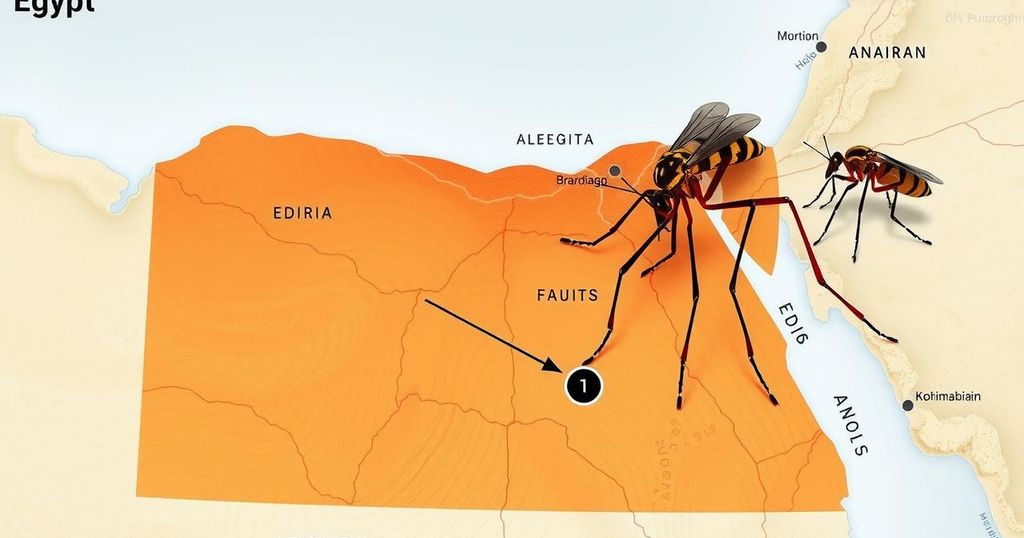Egypt Achieves Historic Malaria-Free Status Certified by WHO

On October 20, 2024, the WHO officially certified Egypt as malaria-free, an achievement following nearly 100 years of dedicated efforts. The country now joins United Arab Emirates and Morocco as the third in the WHO Eastern Mediterranean Region to receive this accolade since 2010. Officials highlight the need for continued vigilance and proactive health measures to maintain this status, serving as an example for other endemic nations.
On October 20, 2024, the World Health Organization (WHO) declared Egypt as malaria-free, an outstanding public health achievement for a nation with over 100 million people. This milestone reflects nearly a century of committed efforts by the government and citizens to eliminate malaria, a disease historically significant to the region. As Dr. Tedros Adhanom Ghebreyesus, WHO Director-General, remarked, “Malaria is as old as Egyptian civilization itself, but the disease that plagued pharaohs now belongs to its history and not its future.” Egypt joins the United Arab Emirates and Morocco in the WHO Eastern Mediterranean Region as one of only three systems recognized for their success in malaria elimination since 2010.
The certification is not merely a conclusion but heralds the commencement of an ongoing mission. Egypt’s Deputy Prime Minister, Dr. Khaled Abdel Ghaffar, emphasized the necessity for sustained efforts in surveillance, diagnosis, treatment, and rapid response to any imported malaria cases. This proactive stance will ensure the preservation of Egypt’s malaria-free status, reflecting a long-term commitment to public health.
Egypt’s historical struggle against malaria can be traced back to ancient times, with significant strains witnessed as early as 4000 B.C. The nation’s first major attempts to combat malaria began in the 1920s, when rice cultivation was prohibited near living areas to reduce human-mosquito contact, and the disease was deemed notifiable in 1930. Over the decades, various strategies were implemented to mitigate outbreaks, including large-scale public health interventions post-World War II, which drastically reduced cases through establishment of treatment divisions and workforce recruitment.
Further advancements came with the construction of the Aswan Dam, which introduced new malaria risks due to standing water. Collaborative efforts with neighboring Sudan allowed Egypt to deploy effective vector control measures and improve surveillance. By 2014, following a small outbreak in Aswan, Egypt successfully contained the issue through rapid identification and treatment protocols.
Access to free malaria diagnosis and treatment has been crucial for the populace, irrespective of legal status. This inclusive policy has strengthened Egypt’s defenses against re-establishing local transmission rates, bolstered by robust cross-border partnerships. The WHO’s certification process entails verification of successful interruption of indigenous malaria transmissions for three consecutive years, demonstrating a nation’s capability to prevent resurgence.
In conclusion, Egypt’s designation as malaria-free is a testament to extensive public health initiatives over generations, showcasing the nation’s determination and resilience. This achievement serves as an uplifting example for countries worldwide, particularly those still grappling with malaria. The commitment of Egypt’s leadership and communities continues to be pivotal in sustaining this important milestone in global public health efforts.
The certification of Egypt as malaria-free by the World Health Organization (WHO) marks a significant achievement in global public health, addressing a disease that has troubled Egypt since ancient civilization. Historically, malaria has been an endemic disease in the region, leading to numerous health crises over the years. The extensive and collaborative efforts of the Egyptian government and citizens have led to a nearly century-long commitment to eliminating malaria, culminating in this recent certification. The certification process by WHO requires proof of sustained interruption of malaria transmission over three consecutive years and robust measures to prevent re-establishment, illustrating the challenge many nations face in combating endemic diseases.
The certification of Egypt as malaria-free is a monumental public health success, showcasing the effectiveness of dedicated efforts over decades to combat a disease present since ancient times. As Egypt embarks on the next stage of its journey to sustain this achievement, the focus remains on vigilance, integrated health responses, and community engagement. This milestone not only transforms Egypt’s health landscape but also serves as a source of inspiration for other nations still struggling with malaria, emphasizing the potential for success through collaboration and commitment.
Original Source: www.emro.who.int








